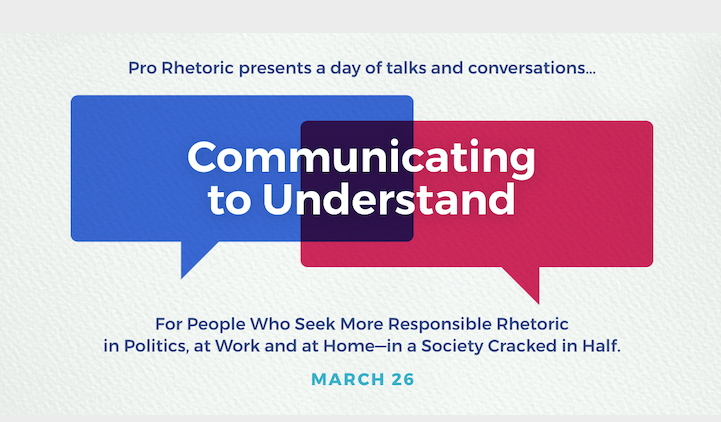A speechwriter is not a tool
July 25, 2022
Your job is not to write what leaders would, if they could. It's to help them say what they should.
I’ve been making fun of this Facebook ad lately, for an AI app that supposedly writes for you. I think the ad itself demonstrates the drawbacks of AI ghostwriting.

But honestly, it’s what the “tool” says in the ad’s video itself that annoys me.
“I can just get a few of the basic ideas down a bit and my thoughts down on paper,” Mr. Multitasker gloats, “and that Jasper will pretty much do the rest, and fill in what I’m thinking.”
“Fill in what I’m thinking!”
This reminds me of an old speechwriter’s version of the client’s command: “Write down my ideas as if I had them!”
To the extent that leaders really believe that a machine, or even another person, could “fill in” what they are “thinking” … well, that reveals something about leaders’ thinking.
Leaders tend to think that what they think is not utterly unique to them, but rather, what anybody in their position would think: anybody with their level of education, anybody with their bird’s-eye view of the situation, anybody with their great responsibilities, anybody with their power and status. And so, if a speechwriter could simply inhabit the universal Leader Mind for an hour or two, she or he could indeed “fill in” what what the leader would be thinking, if the leader was thinking. And maybe even make it funny!
This is one of many reasons I admire speechwriters enough to devote my career to their craft, community, care and spiritual feeding—but could never be one myself. I would require clients who would also value my perspective, my experience, my outlook on the communication situation. And those clients don’t grow on trees.
In my book, I have a passage about when my dad, a writer himself, was dying from pancreatic cancer:
Dad can’t write anymore because the pills make his head fuzzy. He wants me to come up with something to write back to “all these people,” a half-dozen family members and friends who have written him letters telling him what he’s meant to them.
I instinctively resist because I think writers can’t ghostwrite for writers, a notion he seems to think is a cop-out. “I asked David for help writing these letters,” I hear him telling my sister on the phone, “and he put on his hat and went out the door.”
So I try.
I tell him he’s already done his part in the lives of these letter writers, and all they really want to know is that he received their letters of appreciation. “Thank you for your fine letter,” I propose he writes on little cards that I’ll address. “And I want you to know that it meant a great deal to me, and so do you.”
“But that’s what you’d write,” he says angrily. “It’s not what I’d write!”
Yep.
As far as I’m concerned, a speechwriter who is going to create anything worth a damn to the speaker or to the audience, will not be trying haplessly to write what the speaker would think in words, if the speaker could think in words. But rather: With the knowledge of the speaker’s basic views and communication style in mind—and the more knowledge of that stuff the better, obviously—writing what the speechwriter believes this speaker ought to say, to this audience, on this occasion, at this moment in time.
And if the speaker doesn’t like it, even after a draft or two or three? In my dear mother’s blanket phrase for anyone who didn’t take her good counsel—(my mother, who was once assigned by an advertising agency to help presidential candidate George Romney with his speeches in 1968, but quickly pulled off the account for being too rough in her criticism)—”fuck them if they can’t take a joke.”
More constructively, the Professional Speechwriters Association offers a free “Speaker’s Guide to Collaborating with a Speechwriter.” Every speaker should read it. And if mutual respect and real collaboration seems too arduous or time-consuming or unrewarding, the speaker should indeed use an AI “tool,” instead—and end the speechwriter’s suffering, at least. —DM




